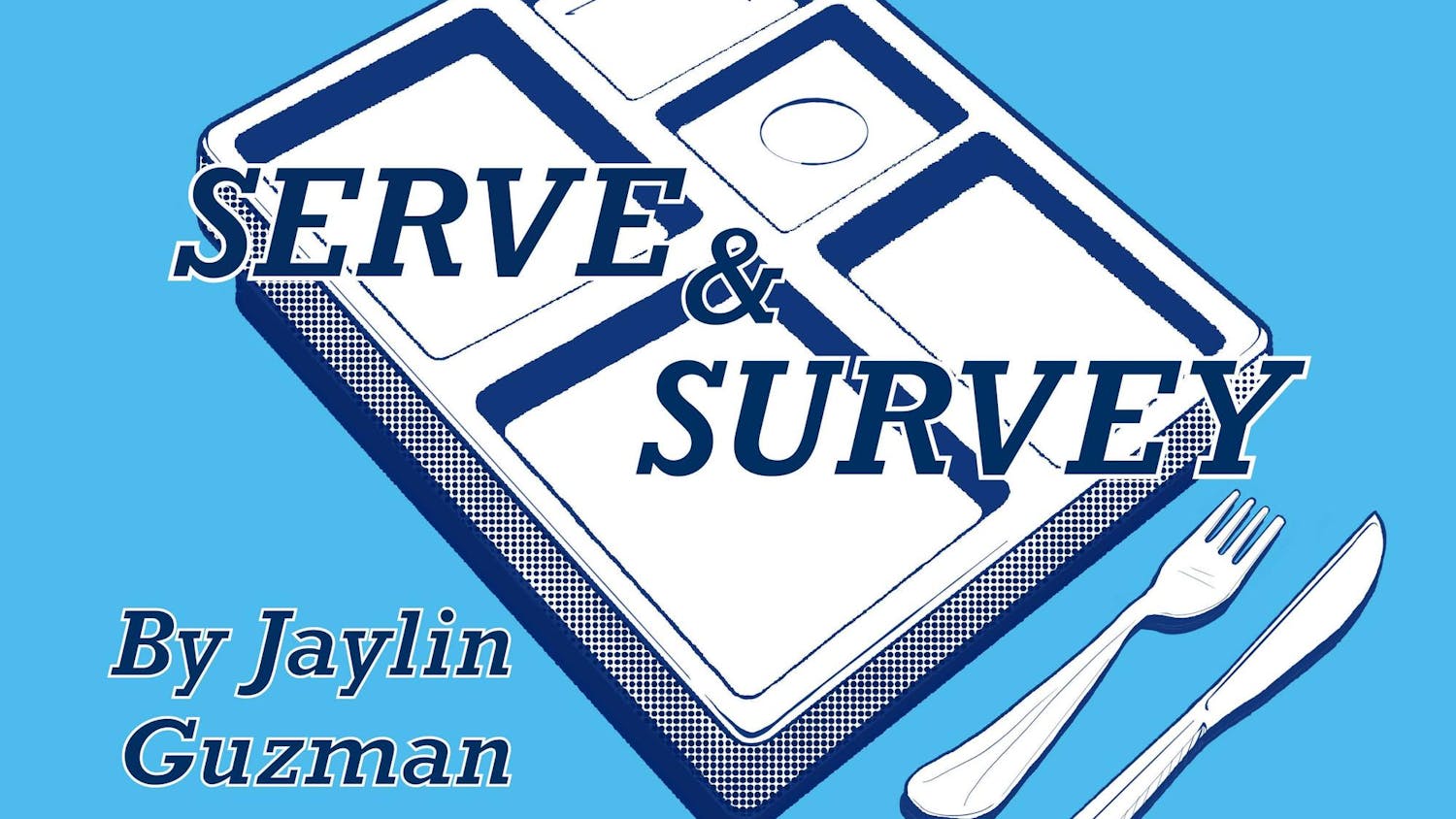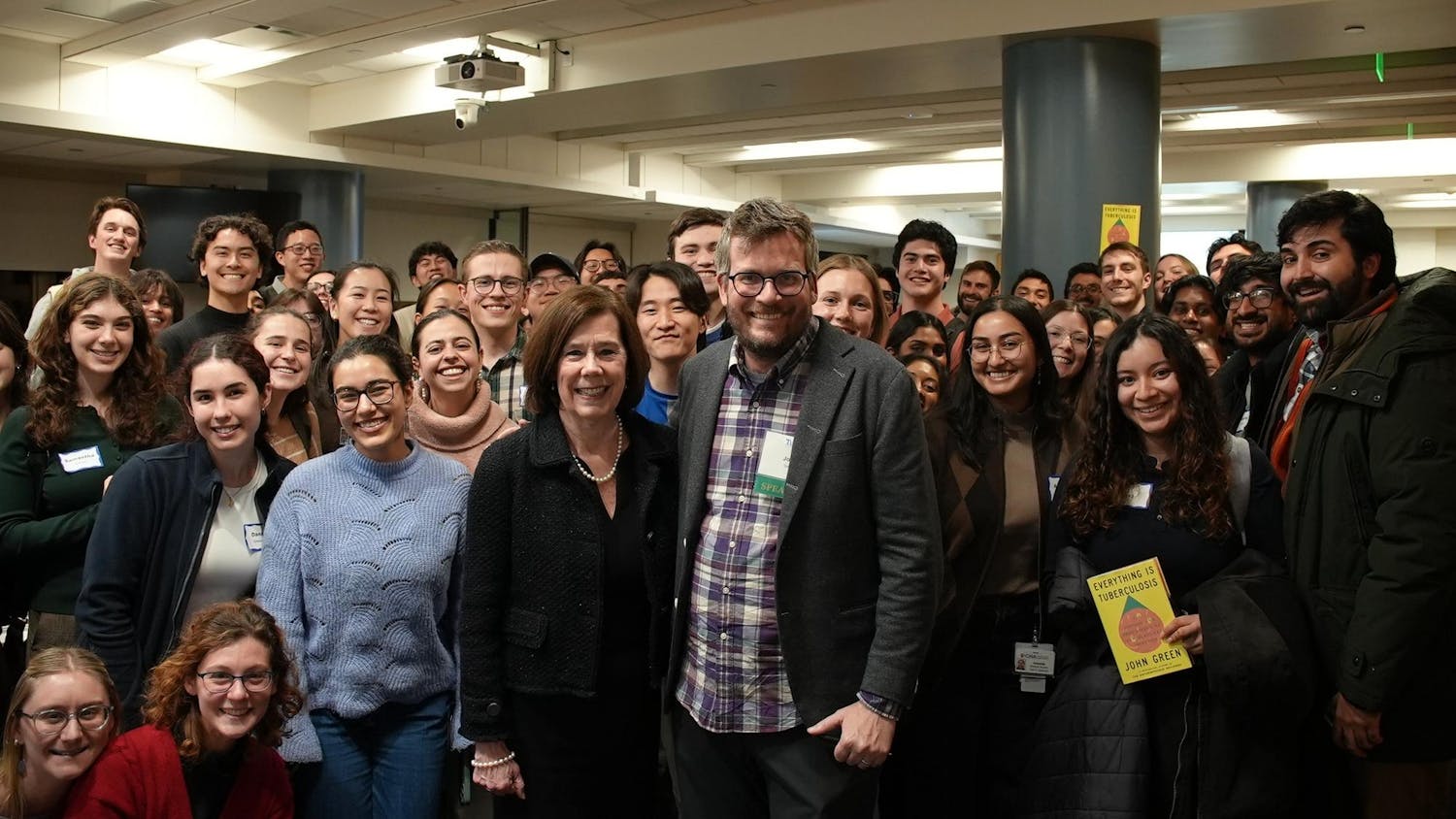Students use iPads to watch movies, download apps and listen to music on the go, and now Tufts has begun to incorporate this mobile technology into the classroom. Tufts Educational & Scholarly Technology Services (ESTS), a university-wide service group that assists faculty in their use of technology, recently launched the iPads for Education Pilot to give faculty the opportunity to incorporate iPads into their curricula.
The iPads for Education Pilot program (iPad Pilot) began in the fall of 2012, according to Senior Education Technology Specialist Haejung Chung, who has helped coordinate the program.
"We intentionally recruited just faculty only, and they took a semester to look into what this tool can do for them in terms of teaching," Chung said.
After incorporating faculty members, the pilot program has now expanded to include full classes of students. According to Chung and Interim Director of ESTS Sheryl Barnes, 80 iPads are available for student use and are loaned to classes for the entire semester. After applying, three or four small classes of 15 or fewer students are chosen to participate. The application process is not extremely limited, but does pose some restrictions.
"[Professors] have to have a strong reason for using iPads, [which] meets their learning objectives and goals," Chung said.
According to Chung and Barnes, interested professors must submit a proposal to the iPad Pilot before the semester begins. The iPad Pilot staff then bases its decisions on the professor's goals and the class size.
"Once we get through those two rounds, usually we ... don't have more than a couple [of] classes that we can't accommodate," Barnes said.
Chung, who launched the iPad Exploration Program at Loyola Marymount University before coming to Tufts, said her previous experience was helpful in kick-starting this project.
"At the time [when I arrived at Tufts], I guess there was no initiative that looks at specifically mobile learning, so it was a good time to think about ... doing some sort of tangible project that would help introduce this concept of mobile learning," she said.
Other schools, like Duke University, also loan iPads to faculty and students in select classes. In addition, some schools have created one-to-one programs in which every student receives an iPad and the cost is included in tuition, according to Chung and Barnes. These programs have been seen not only at the college level, but in medical schools and high schools as well. For example, Burlington Public Schools in Massachusetts implemented a one-to-one program using money from their existing budget, according to apple.com.
Assistant Professor of History Alisha Rankin said she uses iPads to improve access to rare texts in her course, "The History of the Book." The devices also help her obtain student feedback through polling applications.
"Ironically, the technology allows us to access the actual readings a little bit better than we can in class because we can all look at the same thing, which I think is really nice," she said.
Students can access PDFs of traditional textbooks and download apps that may provide access to uncommon texts.
"One of the museums at Harvard put out this little app of an anatomical text from the 16th century where you could actually lift up little parts to see the inside of the body," Rankin said. "But there's an app ... for it where you can just click and the little bits move away."
Rankin uses the application called "Poll Everywhere" to collect information from her students about the readings, she explained.
"I used to do this little thing at the beginning of class called 'confession time,' in which students told me what they had focused on and what they hadn't," she said. "But this allows me to do it anonymously ... I don't know who wrote what, so I just get a sense of what people have read in the class and what they liked the best."
Nancy Gleason, a Fletcher School affiliate who teaches "Water Policy and Politics" - another class currently participating in the iPad Pilot - uses the technology to give her students access to the media. According to Christina Bassick, a senior in Gleason's course, students in the class often use Twitter to stay on top of news related to water policy. In addition, the students' final project requires them to create a presentation using solely iPads, she explained.
"I think there are two positive aspects," Bassick said. "One, we're getting to learn new technologies in general ... and two, for a lot of jobs - especially for recent graduates - you don't necessarily have to write a 15-page paper and submit it to your boss and have them read it. Knowing how to use these apps and this kind of new technology ... will help people in future jobs to be able to say, 'Oh, I know how to do this,' and can make them more comfortable with presenting in the future in a job environment."
However, the privilege of teaching a course full of iPads requires a new level of responsibility for the teacher, according to Rankin.
"It's actually a lot more work to put it together than preparation for just discussing readings in a normal seminar," Rankin said.
Bassick and Chung agreed that technology should not be used without an intended purpose.
"Certain professors should definitely use [the iPad Pilot], but I think it's something that professors shouldn't just say, 'Oh well, I have the opportunity to use it so I'm just going to go for it and not plan accordingly,'" Bassick said. "Professors really need to plan in advance what they're going to use it for and how it's going to be incorporated in the class, because otherwise ... students can't utilize [them] as much as they should be."
"[The] instructor has to embrace it a lot and then really think through how this could be integrated in and out of the classroom because ... if you don't put much weight into it, the results could be very shallow," Chung said.
Despite the potential for distraction, students reported wanting to use the technology responsibly.
"I feel like when everyone has a laptop, everyone's kind of entitled to [this feeling of] 'use my laptop, I'll do whatever I want on it,' but with the iPad ... it was given to you, we're all using it, we're all supposed to be using it for the same thing," Ryan Grandeau, a junior in Rankin's "History of the Book" course, said.
Tufts Technology Services provided the funding for the 80 iPads in the program. In the future, however, Chung and Barnes said their most important focus will be to further develop the technology Tufts already has.
"We have no idea whether we can renew or whether we can get additional funds, so ... we've been focusing on how we can maximize this investment," Chung said.
Organizers of the pilot program are excited about how this incorporation of new technology can act as a vehicle to help faculty improve their teaching, according to Barnes.
"We're continually scanning the whole technology teaching landscape and looking for opportunities," Barnes said. "We know it's not about the iPad - it's about the teaching and about trying to help. Faculty have a lot to do, so we're there to help lower some of that barrier to entry for them and ... pave the way a little bit."





